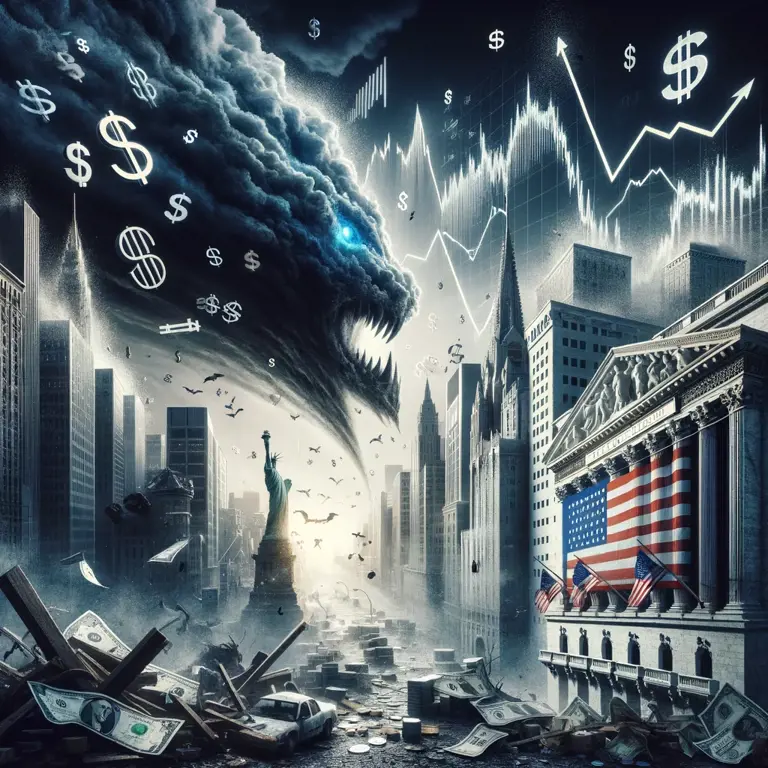Robert Kiyosaki, celebrated for his influential ‘Rich Dad, Poor Dad’ series, recently made waves on social media by issuing a stark warning about the looming specter of economic turmoil facing the United States. Drawing from his extensive experience and expertise in financial matters, Kiyosaki painted a sobering picture of America’s economic trajectory, suggesting that its days of economic prosperity might be numbered, with a monumental market crash on the horizon.
Central to Kiyosaki’s apprehensions is the exponential growth of debt plaguing the nation, which he perceives as a ticking time bomb poised to detonate the “everything bubble.” This term encapsulates the precarious state of various asset classes, including stocks, bonds, and real estate, all inflated to unsustainable levels and vulnerable to a significant correction.
Kiyosaki’s warning echoes a broader global sentiment, particularly evident among emerging economies like the BRICS nations, which are increasingly distancing themselves from reliance on the U.S. dollar. This strategic shift reflects growing concerns about the dollar’s stability amid mounting economic uncertainties, compelling these nations to diversify their reserves and shield themselves from potential currency devaluations and economic shocks.
In response to this impending crisis, Kiyosaki advocates for a strategic allocation of assets, emphasizing the importance of investing in traditional safe havens such as gold and silver, as well as emerging digital currencies like Bitcoin. These alternative stores of value are perceived as potential lifesavers in the event of a financial meltdown, offering protection against the ravages of inflation and currency depreciation.
Despite the veneer of economic stability portrayed by conventional metrics such as robust GDP growth and low unemployment, Kiyosaki warns of underlying vulnerabilities lurking beneath the surface. In particular, he highlights the precarious situation facing American corporations, burdened by a mountain of debt accumulated during years of easy credit access.
This “corporate debt cliff,” as Kiyosaki describes it, poses a significant threat to the economy, as companies struggle to service their debts amidst rising interest rates and tightening credit conditions. The potential ripple effects of widespread corporate defaults could reverberate throughout the economy, triggering a domino effect of job losses, reduced consumer spending, and financial distress.
Navigating these treacherous waters presents a formidable challenge for policymakers, particularly the Federal Reserve, tasked with striking a delicate balance between controlling inflation and supporting economic growth. Meanwhile, the United States grapples with the daunting task of managing its burgeoning public debt and budget deficit, relying on investor confidence to sustain its borrowing spree.
In the face of these mounting challenges, Kiyosaki’s warning serves as a clarion call to action, urging individuals and institutions alike to heed the signs of impending economic upheaval and take proactive measures to safeguard their financial well-being. The fate of the American economy hangs in the balance, dependent on the collective wisdom and resilience of its citizens and leaders in charting a course through turbulent waters.
